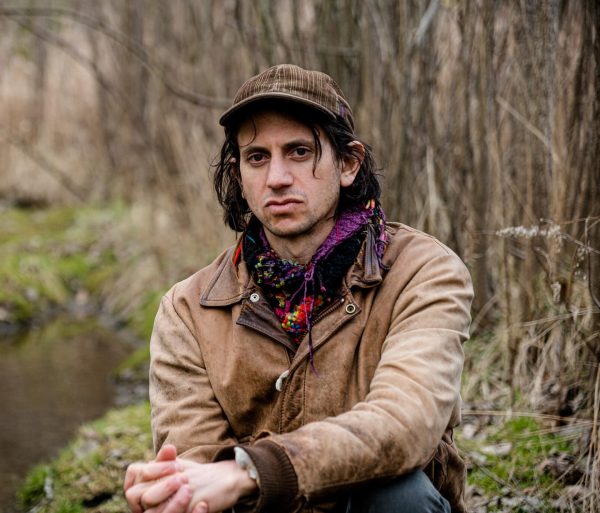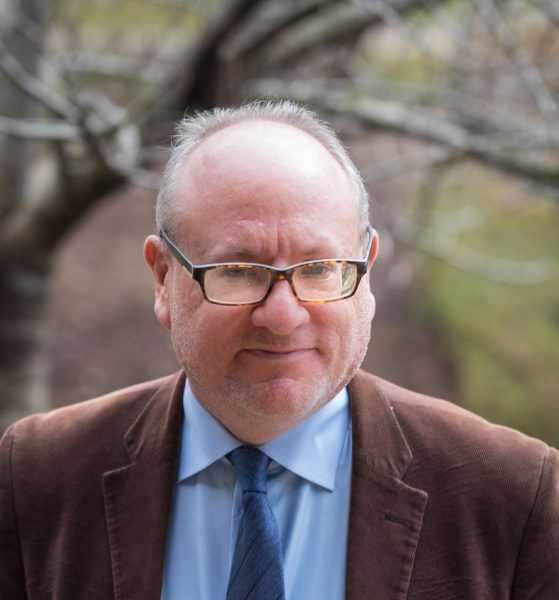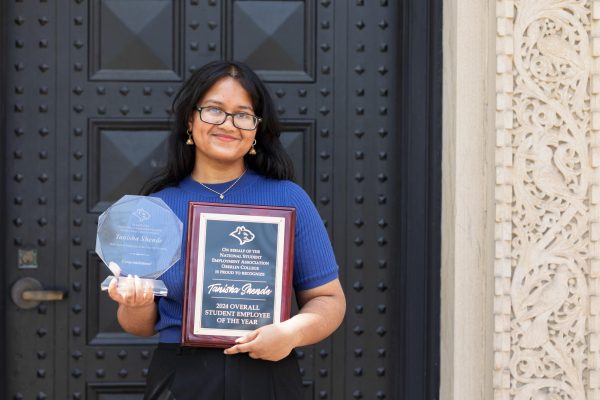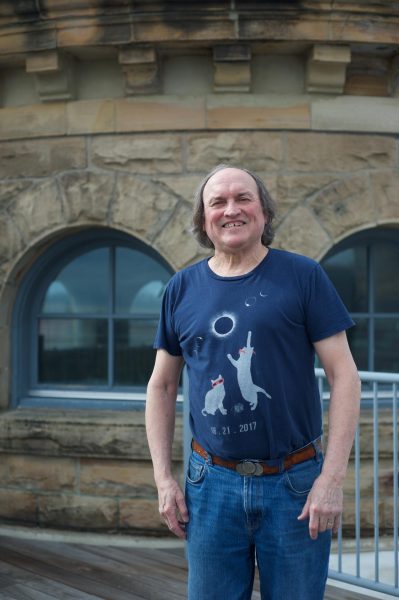Heidi Brown, OC ’93, Investigator
Heidi Brown, OC ’93, is a former journalist for Forbes Magazine in Russia. She covered the Russian business environment after the collapse of the Soviet Union and has written extensively on Russia’s oligarchs and governmental corruption. She now works for the Financial Industry Regulatory Authority as an investigator. Brown delivered a talk on Russian politics, titled “Beyond the Oligarchs” in King Building Monday.
This interview has been edited for length and clarity.
What drew you to Russia’s business scene?
I did not have any interest in business or being a business journalist when I was at Oberlin or when I decided to commit to journalism as a profession. After I graduated, I went to New York, and I tried to get an internship at The Nation, but they told me that they didn’t like that I showed up in a business suit for my interview. I also tried to get a job with the International Rescue Committee during the war in the former Yugoslavia. They were very nice, but told me that they couldn’t hire anyone who didn’t have any logistics experience. Because I spoke Russian, someone I knew at Texas Monthly Magazine said, “Why don’t you use your language skills and go abroad?” I had never thought that I would go back to Russia, because I thought St. Petersburg was a very difficult place to be when I lived there. But it was my one opportunity to break into the business, and I took the chance and went to Vladivostok. It opened up a whole new world.
When did you become a staff writer for Forbes Magazine?
When I got to Vladivostok, the nice thing was I was writing about all different things Russian. I wrote about the environment, power structures, corruption, etc. Again, I didn’t have a sense that I would become a business journalist, but when I got back to the states, Forbes had an interest in hiring someone with my language experience. And I thought that working for a well-known publication would be good for my career, so I learned about business on the job.
How would you describe the change that has been taking place since you started covering Russian business and oligarchy?
I would say that, unfortunately, the most surprising thing is how little things have changed. When I was finishing up my time at Forbes, it was becoming really clear that every business story kind of took on the same shape. It was about looking at some wealthy person and how they got their money, which always followed the same pattern — through a connection to the government or some sort of protection — while maintaining a good relationship with Putin to safeguard their wealth. And that really remains constant. The only difference is that now the people who are really powerful have already established their relationships with Putin and have learned how to keep that relationship peaceful by not posing any sort of threat to him.
Given this year in American politics and speculation around election interference, what could you say is important for Americans to think about Russia?
I spoke Monday afternoon about the fact that just having a basic understanding of what we’re seeing today — incursions into the Democratic Party’s email system and these manipulative bots on the internet — is really just a very new way of using a very old Soviet method for misinformation and propaganda to stir up chaos in a political enemy. As long as we can be aware of what’s happening, we can maintain a critical distance from the things that we read. That’s the best way to defend against threats to any part of our democracy, whether it be from Russia or elsewhere.
Do you think that social media has influenced the politics of Russia?
Absolutely. I think social media is absolutely critical and instrumental in helping to build an opposition domestically. When I wrote the story in ’09 predicting that there would be censorship on the internet, it was because that was the beginning of people using Russian blogs to post very controversial thoughts, mostly to their friends, but then they became public. It was a blog called LiveJournal, and it quickly became an area for like people to share critical ideas about the regime, and ever since 2009 through 2012, Russians have used social media to connect with each other across a very large expanse and to try to maintain some sort of freedom of thought because the media itself is now almost all either government-owned or government-connected.
Is there anything that surprised you learning about Russia and covering it for so long?
I guess what I would say is it’s like any other place that we don’t understand initially. But when you start to learn more about the people who live in it you became more familiar with the hopes and ideas for making the country better. You know, when you’re looking from the outside, Russia seems so gray and stagnant, but there are so many people who have interesting lives in the arts, people who do experimental theater, and others who continue to be active in political groups and activism. I think that was probably the most surprising thing: the diversity of people I found once I got to know the place better.
Why is it important that this subject is addressed and talked about at a place like Oberlin?
Going back to my theme, I think it’s important to understand that what we’re seeing today really has deep roots. Russia right now is trying to understand where it came from. It’s still looking at the Stalin era. History is informing how it behaves, domestically and on the global stage. So I think for people like Oberlin students — who see just what’s happening today, and they read about bots and they read about these fake news stories — it may all seem so scary, or it may seem so overwhelming. But I think if you have historical context and understand where it’s coming from, and understand that, what the agenda is, is really more about how Russia sees itself. What Putin is trying to send as a message to his own people is that they are still powerful, and still part of an empire. I think that can help Oberlin students too. I mean, think about the parallels with our own administration, right?
Would you like to go into more detail about that?
I guess I could say that having been a student of Soviet history and also post-Soviet history and business, observing the way President Donald Trump has sort of conducted himself and the way that he combines his business interests with the power that he wields today has an echo for me. It’s not even something that I think about, it just automatically resonates with what I know about how Russia unfolded after the Soviet collapse. The parallels are so strong. To see the way Trump functions, the way he keeps his family in power, and relies so closely on the people he trusts to have positions of influence, it’s so close to me to the way people in power in Russia function.
You mentioned before that you predicted some changes in Russia that ended up happening. Do you have any concept of where Russia is going at this point?
I believe there is going to be more stagnation. I think it’s going to stay in this sort of situation where I think Putin’s going to stay in power for a while, and I think that the people who have the money, the capital, the influence, if they continue not to alienate him, will remain powerful and wealthy. I think the next — and I’m not the only person to say this — I think the next big source of instability is going to be any problems with Putin’s health. There’s a lot of reflection going on within Russia about what comes after Putin. It’s a big question mark. He hasn’t prepared a successor that we know of.







